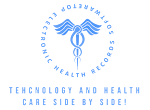If you are a physician who wants to switch from paper to electronic records, it is important to consider the benefits of both Athena EHR and Nextgen EMR. Both are beneficial EHR software that provides numerous characteristics for assisting physicians in their day-to-day activities. Both Athena EHR and NextGen EMR provide great EHR characteristics, but both are equally beneficial. NextGen EMR offers features that make it an excellent option for the medical community, including mobile solutions, clinical tasking, and integration with radiology, lab, and immunization systems.
Practice Fusion:
Practice Fusion is a cloud-based EMR that was once free to sign up for. AllScripts, the company that acquired Practice Fusion, charges for additional add-ons and implementation services. Practice Fusion also generates revenue by selling provider advertisements and clinical statistical data. This allows it to sell patient data stripped of personally identifiable information. Its cloud-based model also allows practices to use the system from anywhere.
Both products boast numerous integrated features, but they differ in their cost. Practice Fusion's unified practice management system includes a patient portal, customizable templates, and an integrated policy support team. Additionally, Practice Fusion offers a free library of charting templates and provides free customer support. Practice Fusion also offers HIPAA-compliant electronic faxing. Compared to Athena EHR, Practice Fusion is easier to use.
iSalus:
In this article, we will compare two different healthcare EMR software solutions: iSalus Nextgen EMR and Athena EHR. Both have their benefits and drawbacks. Read on to learn about these two programs and which one will work best for your practice. Both are highly rated by selectHub users. NextGen is a top choice for small practices, while Athena is best for large practices.
Athena's robust functionalities help care providers streamline their daily processes. It is easy to use, and users report minimal downtime. It has good customer support, but some users have reported problems with the claims functionality. Users reported inaccuracies in the data but were unable to determine the cause. Overall, it is a good choice for smaller practices. You can also get a free trial of Athena to evaluate its functionality before buying.
Epic 101:
When choosing between an EHR and an EMR, a number of factors should be considered, such as cost, ease of use, and functionality. Epic is slightly more expensive than Cerner, but is often chosen by larger healthcare organizations and clinical practices. The company does not reveal their pricing information, but it is generally slightly more expensive than Athena. The cost of the Epic solution will vary depending on how it is implemented.
While Epic is a well-known and highly rated software provider, the company has also recently started venturing into new markets. Its utility and Sonnet are aimed at specialty care practices and general ambulatory care settings. In both cases, a single system can support multiple locations. However, Epic has been known to sell big and expensive systems, so if you are a smaller hospital or clinic, you may not find these options as appealing as athenahealth.
NextGen Healthcare:
If you're looking to replace your current EMR, you should seriously consider NextGen Healthcare VS Athena EMR. This medical software solution is a full-featured EMR with features ranging from Accounting & Finance to Billing & Invoicing. Both are highly customizable, and both have easy-to-use interfaces. Athenahealth is cloud-based, meaning you can access it from any location, and NextGen is easy to customize. Its customer service is excellent.
The biggest difference between the two is the features and integration options. Athena is a more robust solution, with features such as a patient portal and mobile devices. Epocrates is also a component of the Athena EHR solution. The app allows users to manage their schedules, document exams, and order supplies. The application syncs with the athenahealth EHR. NextGen Healthcare is a disruptive company that understands the needs of physicians.
You can also check EHR systems for all your medical needs.
MEDITECH 101:
MEDITECH Nextgen EMR vs. Athena EHR has a lot to offer medical practices. The NextGen EMR enables medical practices to consolidate patient information, provides robust reporting tools, and secure patient data. It also emphasizes security through role-based access. Its NextGen Ambulatory EHR is intended for large and medium medical practices with at least two physicians. Its simplicity and reliability are appreciated by users. It also evolves regularly to meet new demands, such as those in the health care industry.
Meditech is a privately held IT vendor that provides software for hospitals. It offers a variety of solutions for small to medium-sized medical practices, including EHR, billing, revenue cycle management, and LIS. It also recently launched Expanse, a cloud-based EHR focused on improving communication between patients and hospitals. MEDITECH has offices in MA and GA and has numerous installations nationwide.

.png)